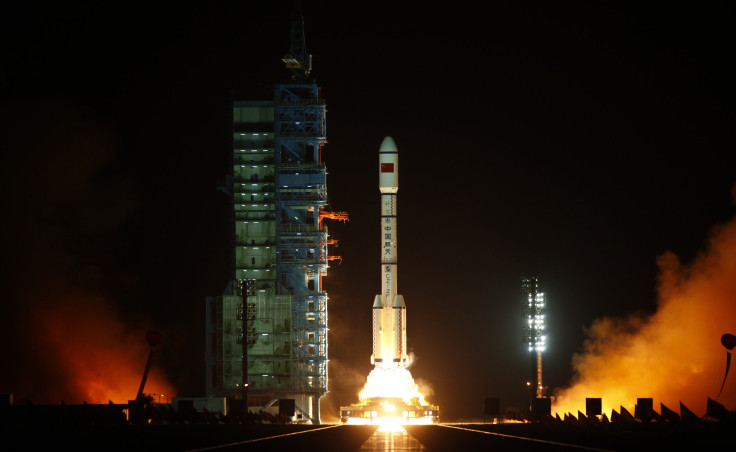China's Space Station Is Out Of Control: Country's Tiangong-1 Will Crash Into Earth

China’s grand aspirations to become a space superpower are expected to hit a pretty big speed bump next year.
China's space station Tiangong-1, the country’s first independent lab, is expected to come crashing down into Earth, according to reports Tuesday. But when and where it could happen is unknown.
The “Heavenly Palace” lab, as it is called, is reportedly out of control but officials hope it won’t significantly impact life on Earth when it makes contact with land. “Based on our calculation and analysis, most parts of the space lab will burn up during falling,” Wu Ping, deputy director of China’s manned space engineering office, told news agency Xinhua.
Others are more skeptical. After months of speculation that the station had been teetering out of control, Harvard University astrophysicist and space industry enthusiast Jonathan McDowell told the Guardian that it is hard to predict what will happen when it heads Earthward.
“You really can’t steer these things,” McDowell said. “Even a couple of days before it re-enters we probably won’t know better than six or seven hours, plus or minus, when it’s going to come down. Not knowing when it’s going to come down translates as not knowing where it’s going to come down.”
Even a slight change in atmospheric conditions could mean the difference between it landing on one continent or another, McDowell said.
Chinese officials saw the lab as a potential “potent political symbol” as China looks to expand its capabilities outside the atmosphere. When China launched the lab in 2011, it became the third country to send a module like that into space, after the United States and Russia. It was designed for orbital docking tests and research. At the time, Chinese officials planned to build a 60-ton space station by 2020.
China's space endeavors are relatively young compared to other nations. A Chinese astronaut first made it past the atmosphere in 2003. China's second space lab, the Tiangong-2, was launched in September.
© Copyright IBTimes 2024. All rights reserved.






















